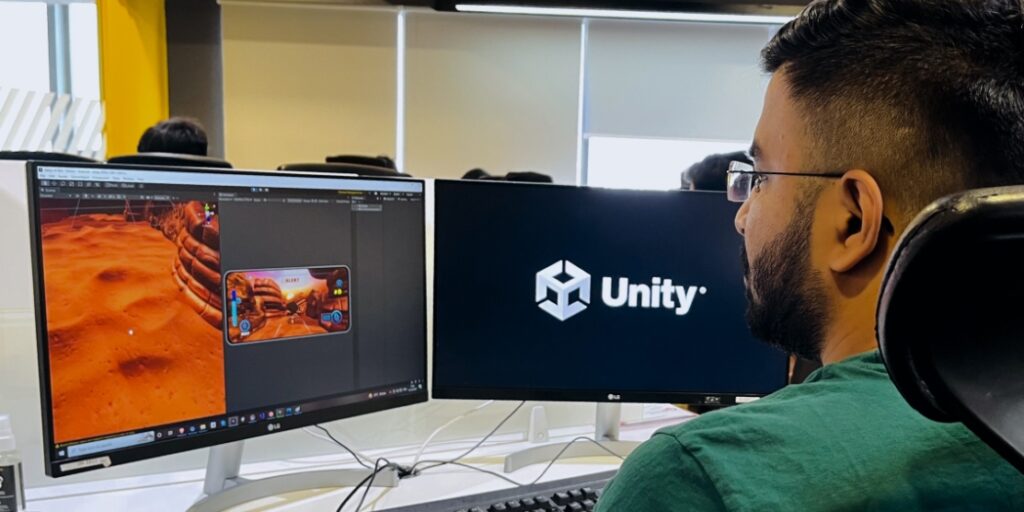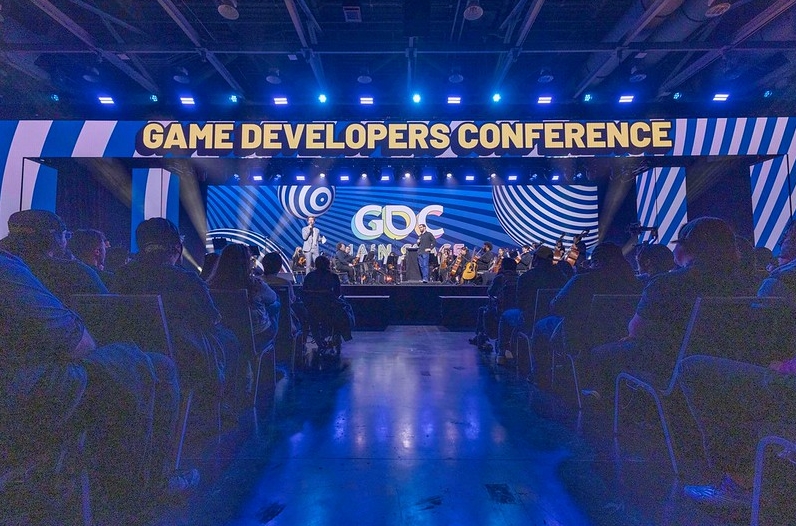Takeaway
Finding the right Unity developer for your game project is crucial for its success. This article provides a comprehensive guide on how to identify, evaluate, and hire the ideal Unity developer, ensuring that your game not only meets technical standards but also resonates with your target audience.
Understanding Unity Development
Unity is one of the most popular game development platforms, known for its versatility and user-friendly interface. It supports both 2D and 3D game development and is widely used across various platforms, including mobile, PC, and consoles. As of October 2023, Unity boasts over 1.5 million monthly active users, making it a go-to choice for indie developers and large studios alike (Source: Unity Technologies, 2023).
The Importance of Hiring the Right Unity Developer
Hiring a Unity developer is not just about filling a position; it’s about finding a partner who can bring your vision to life. A skilled Unity developer can significantly impact the quality of your game, from optimizing performance to enhancing user experience. The right developer will not only possess technical skills but also align with your project’s goals and culture.

Defining Your Project Requirements
Before you start searching for a Unity developer, it’s essential to define your project requirements clearly. This includes understanding the scope of your game, the target audience, and the specific features you want to implement. Here are some key aspects to consider:
1. Game Type and Genre
Identify whether your game is a 2D platformer, a 3D shooter, an RPG, or another genre. Different genres may require different skill sets. For instance, a 3D shooter may need a developer with experience in physics and AI, while a 2D platformer may focus more on animation and level design.
2. Technical Skills
Unity developers should be proficient in C#, the primary programming language used in Unity. Additionally, familiarity with Unity’s Asset Store, version control systems like Git, and experience with various platforms (iOS, Android, PC, etc.) are crucial. Consider whether you need a developer with experience in VR or AR, as these technologies require specialized knowledge.
3. Team Dynamics
Consider how the developer will fit into your existing team. Will they be working closely with artists, designers, or other developers? Understanding the dynamics of your team can help you find a developer who not only has the right skills but also complements your team’s culture.
Where to Find Unity Developers
Once you have a clear understanding of your project requirements, the next step is to find potential candidates. Here are some effective avenues to explore:
1. Freelance Platforms
Websites like Upwork, Freelancer, and Fiverr offer a vast pool of freelance Unity developers. You can post your project requirements and receive proposals from interested candidates. Be sure to check their portfolios and client reviews to gauge their expertise.
2. Game Development Communities
Online communities such as Unity Forum, Reddit’s r/gamedev, and specialized Discord servers can be excellent resources for finding developers. Engaging with these communities can also help you understand current trends and best practices in game development.
3. Networking Events and Conferences
Attending game development conferences like GDC (Game Developers Conference) or PAX can provide opportunities to meet potential developers in person. Networking at these events can lead to valuable connections and insights into the industry.

Evaluating Candidates
Once you have a list of potential Unity developers, the next step is to evaluate their skills and fit for your project. Here are some strategies to consider:
1. Portfolio Review
A developer’s portfolio is a critical indicator of their capabilities. Look for completed projects that are similar in scope and style to your game. Pay attention to the quality of their work, including graphics, gameplay mechanics, and overall polish.
2. Technical Assessment
Consider conducting a technical assessment to evaluate the candidate’s coding skills. This could involve a coding test or a small project that mimics a real-world scenario they would encounter while working on your game. This assessment can help you gauge their problem-solving abilities and coding proficiency.
3. Cultural Fit
Assessing cultural fit is just as important as evaluating technical skills. Conduct interviews to understand their work ethic, communication style, and how they handle feedback. A developer who aligns with your company’s values and culture will likely contribute positively to the team dynamic.
Negotiating Terms and Conditions
Once you’ve identified the right candidate, it’s time to discuss terms and conditions. This includes salary, project timelines, and deliverables. Be transparent about your budget and expectations to ensure both parties are on the same page.
1. Salary Expectations
Research industry standards for Unity developers to ensure your offer is competitive. According to the International Game Developers Association (IGDA), the average salary for a Unity developer in the U.S. ranges from $70,000 to $120,000 annually, depending on experience and location (Source: IGDA Developer Satisfaction Survey, 2023).
2. Project Timelines
Clearly outline project milestones and deadlines. This will help manage expectations and ensure that the developer understands the urgency of the project. Regular check-ins can also help keep the project on track.
Onboarding and Collaboration
Once the terms are agreed upon, the onboarding process begins. A smooth onboarding experience can set the tone for a successful collaboration. Here are some best practices:
1. Provide Necessary Resources
Ensure that the developer has access to all necessary resources, including project files, documentation, and tools. This will help them get up to speed quickly and start contributing effectively.
2. Foster Open Communication
Establish clear communication channels to facilitate collaboration. Regular meetings and updates can help address any issues that arise and keep everyone aligned on project goals.
Conclusion
Hiring the right Unity developer is a critical step in the game development process. By clearly defining your project requirements, exploring various avenues for finding candidates, and thoroughly evaluating their skills and fit, you can ensure that you select a developer who will contribute positively to your project. Remember to negotiate terms transparently and foster a collaborative environment to maximize the potential of your game. The right Unity developer can be the difference between a mediocre game and a standout success.
Key Points
- Define your project requirements clearly before starting the hiring process.
- Explore various platforms and communities to find potential Unity developers.
- Evaluate candidates through portfolio reviews, technical assessments, and cultural fit interviews.
- Negotiate terms transparently to ensure mutual understanding.
- Foster open communication and provide necessary resources during onboarding.

